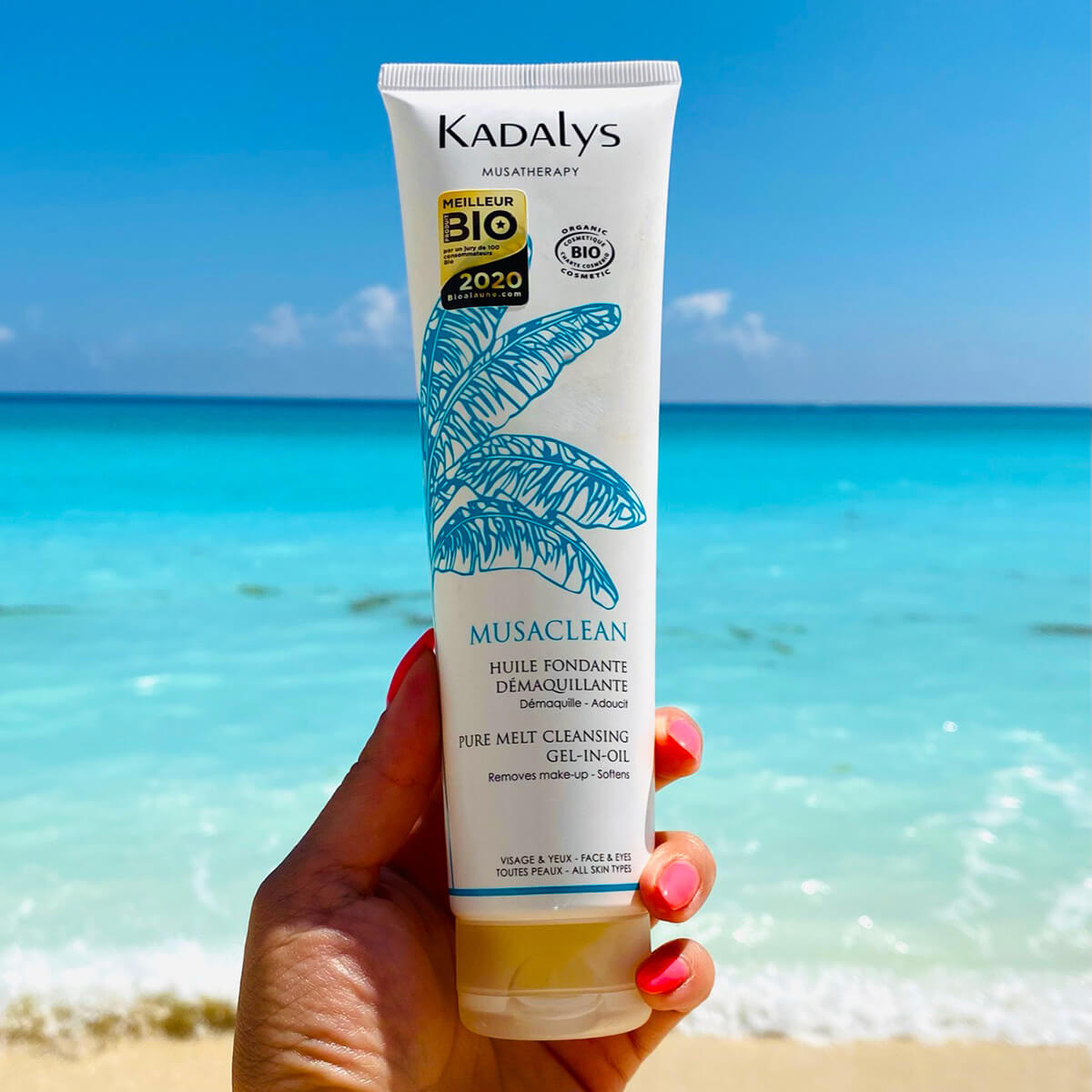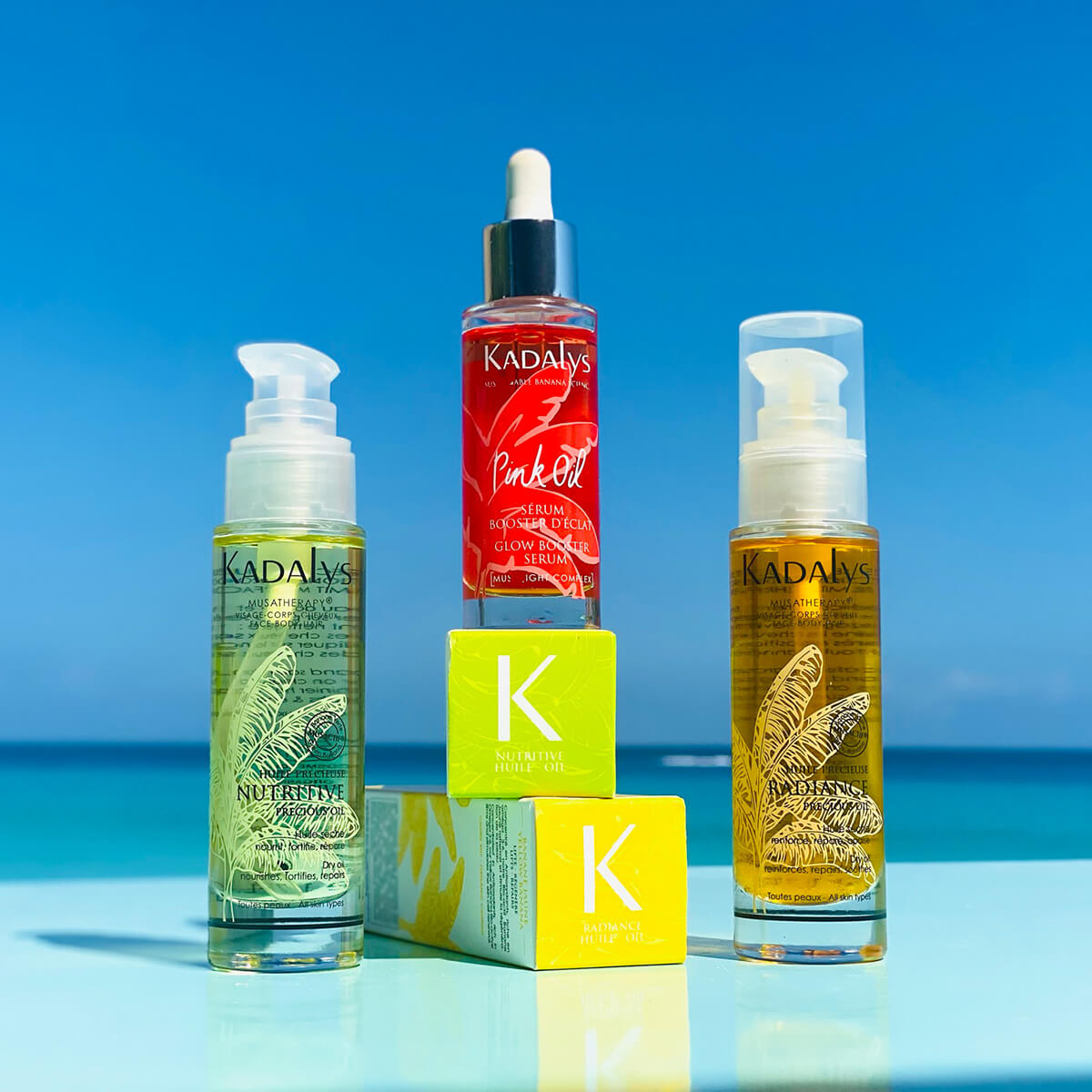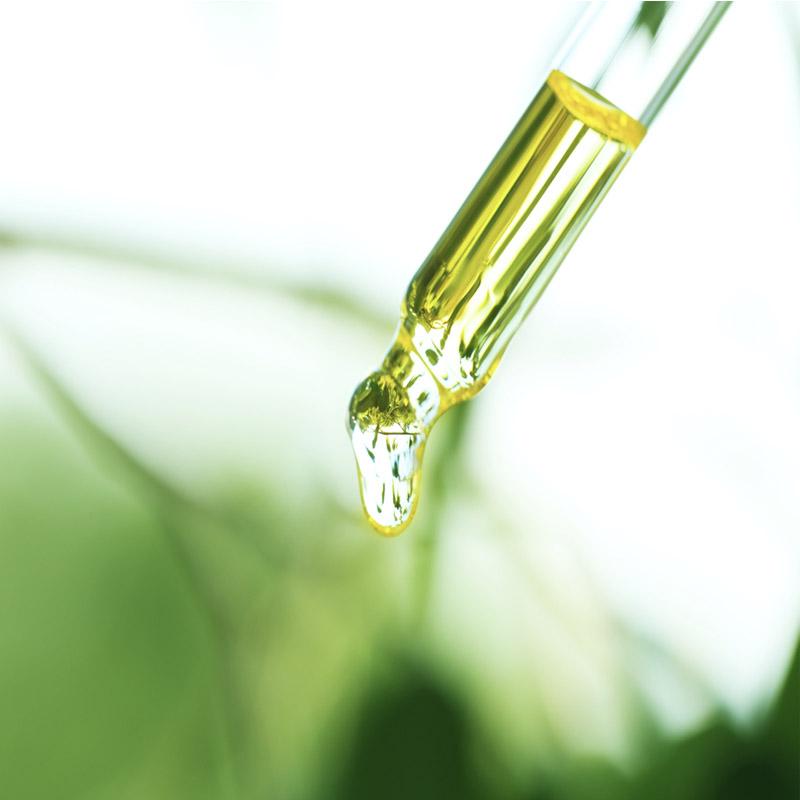
The DOs And DON'Ts Of Skin Barrier Repair
You want healthy and glowing skin, but it isn't always easy to figure out the best way to do so.
Walk into any beauty store and the number of skincare products is overwhelming. Cleansers, serums, oils, essences, masks, and many different ingredients. So. Many. Ingredients.
It's a lot to sort through. What you want is stuff that works vs. miracle claims and empty promises that come in pretty packaging. Sometimes it almost feels like you need a degree in chemistry to figure it all out.
How to keep skin healthy and avoid a damaged skin barrier
Here's the good news. Learning just a little about your skin barrier can help you better decide which products to use.
So, let's peel that proverbial banana and dive into your skin's barrier, its purpose, and how you can protect it.
What exactly does skin do?
Have you ever stopped to wonder how your skin works? This may seem like a question with an obvious answer, but in all honesty, the skin is one of the most complex organs in your body.
In fact, it is the largest organ in your body, and it does a whole lot! Your skin regulates your body temperature. It protects you from bacteria, moisture loss, and environmental factors, such as ultra-violet light. Besides keeping everything else out, your skin keeps water in. That's why it is so important to have a healthy moisture barrier.
Without this protective layer, all sorts of problems can arise:
- Increased water loss (known as trans epidermal water loss or TEWL)
- Increased sensitivity to irritants
- Infection by microorganisms that are typically unable to penetrate a healthy skin barrier
- Inflammatory skin conditions, such as eczema, atopic dermatitis, and psoriasis
- Allergic reactions, redness, or rashes
- Skin aging
What's the skin barrier?
The skin's barrier is the outermost layer of your skin (also known as the stratum corneum). It's your first line of defense against bacteria and other microorganisms, and harmful UV rays from the sun. The epidermal barrier is composed of lipids (fatty acids) that work to keep moisture in and irritants, bacteria, and other foreign substances out.
Your skin needs to be healthy to keep your skin barrier strong. A healthy skin barrier ensures that your skin will not become completely dehydrated or inflamed. Your skin's natural barrier keeps your skin hydrated, plump, and supple.
This outer layer also protects you from environmental factors like pollution, chemicals, and irritants. When you have a damaged skin barrier, your skin is not able to protect you from these aggressors effectively.
What causes a damaged skin barrier?
Unfortunately, everyday exposure to pollution, dirt, and other toxins can wreak havoc and cause skin barrier damage.
When the barrier is damaged, it can lead to issues like dryness, redness, irritation, and even breakouts. This leaves your skin vulnerable to infections, irritation, and premature aging.
Things that can affect your skin barrier health and cause skin damage include:
- Harsh weather conditions
- Harmful environmental toxins
- Too much sun exposure
- Drying skincare products
- Harsh soaps or cleansers
- Over exfoliation or aggressive exfoliation scrubs, loofahs, or brushes. These products can strip away protective lipids and cause barrier damage.
- Chlorine causes dryness and irritation, leading to an increase in susceptibility to infection.
- Environmental stressors like smog, cigarette smoke, car exhaust, chemical fumes, fragrances, air conditioning, and central heating
- Topical corticosteroids may decrease the severity of a condition, but they also diminish your skin's ability to stay hydrated. This can lead a compromised skin barrier.
- Lifestyle habits, including stress and not getting enough sleep
What's the acid mantle?
The acid mantle is a thin film on the surface of your skin that helps shield against viruses, bacteria, and other foreign invaders.
The acid mantle is made up of sebum, which is the oily substance secreted by the sebaceous glands under the skin. When this sebum mixes with amino acids from sweat, it creates your skin's pH level. The acid mantle has a pH level of between 4.5 and 5.5. This slightly acidic environment helps keep harmful bacteria from thriving and causing infections.
Together with the microbiome, the acid mantle forms part of the delicate matrix that creates a healthy skin barrier.
Why is barrier function important?
A healthy skin barrier protects you from environmental irritants, chemicals, and potential infections.
Compromised skin can increase water loss, which could lead to dry skin. In some cases, this may cause atopic dermatitis or eczema.
Science has shown that people with a weak skin barrier function are more likely to experience acne than those with a healthy skin barrier. (Want to learn more about keeping your skin clear? Read our blog post on "How To Get Clear Skin.")
Plus, as you age, your skin naturally becomes drier, so it's essential to do everything possible to maintain healthy barrier function.
How to tell if you have a damaged skin barrier?
One way is to look at your skin. If you notice that your skin is dry, red, or irritated, it could signify that your moisture barrier might be compromised.
Another way to tell is by how your skin feels. If your skin feels tight, itchy, or inflamed, it could also be a sign of damage to your skin barrier.
Here are some common symptoms that might signal your skin barrier is damaged:
- Dry, scaly skin
- Dehydrated, dull skin
- Itchiness
- Hyperpigmentation
- Rough or discolored patches
- Acne
- Sensitive or inflamed areas
- Chronic skin irritation
- Bacterial, viral, or fungal skin infections
- Delayed wound healing
If you're unsure whether your skin barrier is damaged, consult with a board certified dermatologist or dermatology practitioner. They can help assess your skin's health and give you the best course of action to repair your skin barrier.
How can I protect my skin barrier?
The good new is that there are several things you can do to keep your skin healthy and avoid a damaged skin barrier.
Here are five DOs and five DON'Ts for keeping your skin healthy and happy:
THE DOs
1. Do simplify your skincare routine.
One of the best ways to protect your skin barrier is to simplify your skincare routine.
Using too many products or harsh ingredients can damage the skin barrier and lead to dryness, irritation, and inflammation.
Stick to a simple routine that includes a gentle cleanser, a hydrating moisturizer, and sunscreen. If you have a skin condition, follow your treatment plan as directed by your doctor.
Look for products that are non-comedogenic and free of harsh ingredients. These products are less likely to damage the skin barrier. If you have a skin condition or reactive skin, avoid any ingredients that may be irritating.
2. Do pay attention to pH.
The pH of your skin is essential for maintaining a healthy skin barrier. When healthy, the skin's natural pH is between 4.5 and 5.5.
Most soaps and cleansers have a higher pH and can strip the natural oils from your skin, leaving it dry and irritated. Look for products designed for sensitive skin and have a pH that is close to that of the skin.
3. Do use a mild cleanser.
Harsh cleansers can damage the skin barrier and lead to dryness, dehydration, irritation, and inflammation. Try using an oil-based cleanser so you don't strip away natural oils from your skin while trying to clean it.
When cleansing your skin, use lukewarm water. Washing your face or showering in hot water can damage the skin barrier and lead to dryness, irritation, and inflammation.
And when you're done, gently pat your skin dry after cleansing to help avoid irritation. Rubbing your skin with a towel can damage the skin barrier.
4. Do use a moisturizer with lipids, hyaluronic acid, glycerin, or plant oils.
Moisturizers with hyaluronic acid and glycerin can help attract and retain hydration. Hyaluronic acid is naturally found in the body and is for its anti-aging, moisturizing and plumping power.
Products with essential fatty acids help keep your skin strong and healthy by preventing water loss while also helping to smooth the surface of the skin. Plant oils can help restore natural oils to keep your skin hydrated.
A moisturizer with these different active ingredients can help protect the skin barrier and keep your skin hydrated.
5. Do feed your skin antioxidants.
Antioxidants help protect the skin from damage caused by free radicals. Free radicals are unstable molecules that can damage cells.
Antioxidants work by neutralizing free radicals, helping to keep skin looking young and healthy. They're a major contributing factor to the aging process.
Some essential antioxidants for the skin include vitamin C, vitamin E, and banana bio-actives. Banana bio-actives are chock full of antioxidants.
Yellow bananas have more than 21x the antioxidant power of argan oil. They also have more vitamin E than grape-seed oil. Banana bio-actives help protect the skin from damage caused by free radicals.
Bananas also have anti-inflammatory properties, which can help to soothe the skin.
THE DON'Ts
1. Don't forget your sunscreen.
The sun's ultraviolet (UV) rays can damage the skin barrier, leading to dryness, irritation, and inflammation. If possible, limit your time in the sun, especially between 10 am and 4 pm when the sun's rays are the strongest.
Apply sunscreen every day, even on cloudy days. Choose a sunscreen with an SPF of 30 or higher and apply it generously to all exposed areas. Reapply every two hours, or more often if swimming or sweating.
Wear protective clothing, such as a long-sleeved shirt, pants, a wide-brimmed hat, and sunglasses, when you are outdoors.
2. Don't over exfoliate
Exfoliating removes the outermost layers of dead skin cells to bring the new cells forward and even encourage skin cell turnover. That's why it's so tempting to exfoliate often.
However, moderation is the key for any healthful skin care routine.
If you exfoliate too often, you can cause physical damage, results in a compromised skin barrier. That's why it is recommended that you exfoliate only once or twice a week.
Furthermore, if you have reactive or sensitive skin, you need to be careful what kind of exfoliators you use. YOU might not be able to tolerate acids like glycolic acid or harsh scrubs.
Instead, use a chemical exfoliator with Alpha Hydroxy Acids (also known as Lactic Acid) to remove dead cells and keep pores clear without irritating your sensitive skin.
Want more info on how to exfoliate correctly? Read "How To Exfoliate Your Face By Skin Type."
3. Don't skip your beauty sleep.
If you don't sleep enough, it can make it harder for your body to keep a regular schedule. This can weaken your skin barrier, which will make your skin more likely to get dry, wrinkled, or irritated.
4. Don't let your skin get dehydrated.
Drinking plenty of water is vital for overall health, including the health of your skin. When you are adequately hydrated, your skin can better protect itself from damage.
5. Don't smoke.
Smoking decreases blood flow in the skin's capillaries and limits oxygenation of the skin cells. In addition, smoking increases inflammation, which can damage the skin barrier. If you smoke, quitting is one of the best things you can do for your skin.
What if you need some barrier repair?
The good news is that the tips for maintaining skin health are also good steps for skin barrier repair.
First, stop doing whatever you're doing to cause your skin to become compromised or create unpleasant skin conditions. Take away anything that might be irritating or creating an immune response. If you're not sure, see a board certified dermatologist for help in identifying the source of the damage.
Then, focus on simplifying your routine, starting with a gentle cleanser first. Be sure to use moisturizers with ingredients like hyaluronic acid and plant-based oils.
And always apply sunscreen.
The bottom line
Your skin barrier is what protects you and keeps you healthy and happy!
It's your body's first line of defense against all the harmful things in the world. Keeping it healthy is very important, and not just for cosmetic reasons.
There is no one-size-fits-all approach to skincare or skin barrier repair. Choose a skincare routine that works for your skin type and needs. Be sure to cleanse, protect, and moisturize your skin every day.
By following these simple tips, you can help protect your skin barrier and maintain healthy skin. Pay attention to your skincare routine, choose products carefully, and stay hydrated to help keep your skin looking its best.





